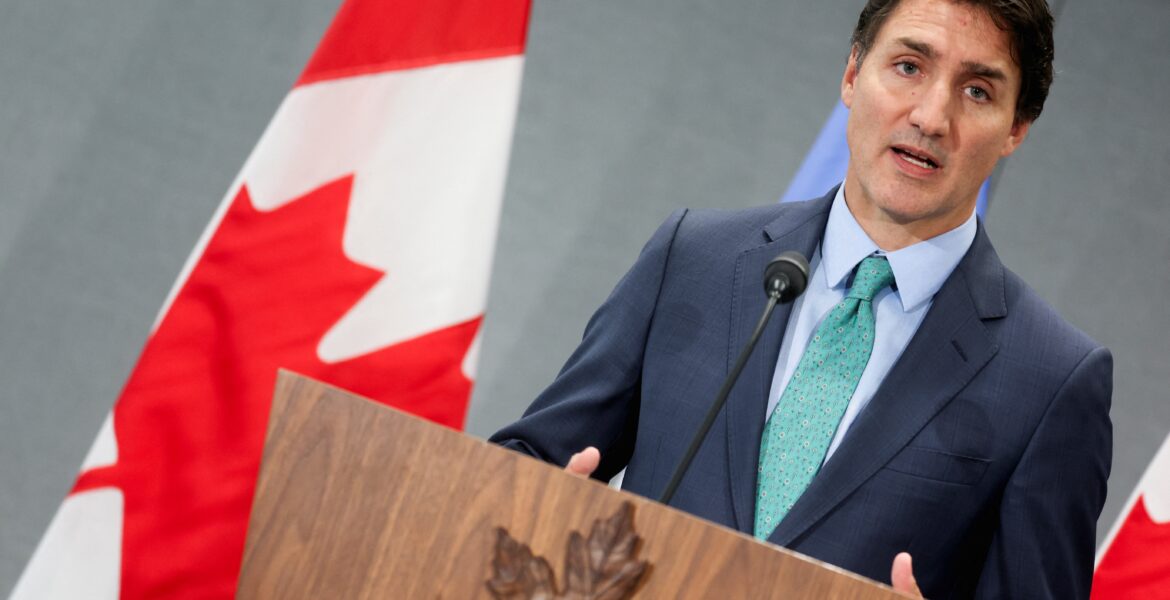The recent diplomatic spat between India and Canada, fueled by Canadian Prime Minister Justin Trudeau’s unsubstantiated claims against India, has raised important questions about the future of U.S. alliance. While Trudeau’s accusations have set relations between the two nations ablaze, the underlying motivations behind his actions—and the broader narrative being constructed by some Western media outlets—deserve closer scrutiny. In fact now more than ever, it is imperative that the U.S. aligns itself with India in this critical moment, as Trudeau’s motivations appear to be politically driven, and the consequences of his rhetoric could undermine global security.
The ongoing tension between Canada and India stems from Trudeau’s allegations that India was involved in the June 2023 killing of Hardeep Singh Nijjar, a known pro-Khalistani extremist. Nijjar’s militant activities, which included open calls for violence and terrorism against the Indian state, have long made him a controversial figure. Even if Trudeau’s claims held any weight—and so far, there is no credible evidence to suggest that they do—it would hardly be a case that warrants the diplomatic fallout we are witnessing. As some have pointed out, such a scenario would be comparable to the U.S. operation that eliminated Osama bin Laden. Both men were violent extremists whose removal would be seen as a step toward global security, not a cause for international rebuke.
Trudeau’s accusations, however, seem less about justice and more about political survival. With his approval ratings plummeting and the Conservative opposition leader Pierre Poilievre surging in the polls, Trudeau appears to be using the India-Canada rift to consolidate a key voting bloc: the pro-Khalistani faction within Canada’s Sikh community. Much like how certain politicians in the U.S. have pandered to fringe elements within minority groups to secure votes, Trudeau’s actions seem aimed at bolstering his electoral chances, rather than reflecting a genuine concern for justice or international law.
This political calculus becomes even more apparent when considering the lack of consistency in Canada’s foreign policy. In the aftermath of the 2008 Mumbai attacks, where Pakistani terrorists killed numerous civilians, including Canadians, Ottawa’s response was notably restrained. Pakistan, a state sponsor of terrorism, continued to harbor individuals responsible for the attack. Yet, Canada’s diplomatic ties with Pakistan remained intact. The double standard is glaring: Why was there no diplomatic retaliation against Pakistan for sheltering terrorists, but now, suddenly, a case against India—without any evidence—is being used to justify a major rift?
For the U.S., the consequences of siding with Canada over India are high. India is a key player in the global fight against terrorism and an indispensable partner in maintaining stability in the Indo-Pacific region, particularly given the U.S.’s standoff with China. With the ongoing crises in Ukraine and Israel, the U.S. cannot afford to jeopardize its relationship with India over Trudeau’s politically motivated accusations. Moreover, India’s denials of involvement in Nijjar’s killing are not mere diplomatic posturing. The Indian government has fully cooperated with U.S. authorities on similar cases, demonstrating its commitment to due process and international law.
It is also crucial to note how Western media outlets have contributed to the skewed narrative surrounding this issue. Instead of offering balanced reporting, many have echoed Trudeau’s baseless claims without critically examining the political motivations behind them. Reports by major U.S. news outlets such as the Washington Post, the New York Times, and the likes dismiss India’s legitimate security concerns. This kind of biased reporting not only distorts the truth but also perpetuates dangerous stereotypes that fuel further division.
The role of journalism is to inform the public, not to peddle the political agendas of leaders facing domestic challenges. The facts surrounding the India-Canada dispute are clear: Nijjar was a militant who advocated for violence and terrorism. These are the kinds of details that need to be reported accurately, without the distortions that have plagued much of the current coverage.
Khalistani extremism, while not a concerning issue for the U.S. today, poses a significant threat that should not be underestimated. The Khalistani extremist movement was responsible for the bombing of Air India Flight 182 in 1985, the deadliest terrorist attack involving an aircraft before 9/11. More recently, Khalistani extremists have attacked Indian consulates in the U.S., and openly made violent threats against the Indian Prime Minister Narendra Modi, and other diplomats. There has also been an uptick in violence against Hindu temples on Canadian and American soil. These are not isolated incidents but part of a broader pattern of extremist activity that must be addressed.
Trudeau’s claims are politically motivated, and his actions risk empowering extremist elements within his own borders while destabilizing international relations. India is not only a strategic partner for the U.S. in counterterrorism efforts but also a democratic ally that shares America’s values of freedom, security, and rule of law.
As the U.S. navigates this complex situation, it is essential to see through the fog of Trudeau’s political games. The U.S. cannot afford to sacrifice its relationship with India—a rising global power and a bulwark against terrorism—just to help Trudeau shore up his domestic standing. Instead, Washington must reaffirm its commitment to truth, justice, and the global fight against extremism by standing firmly with India.

